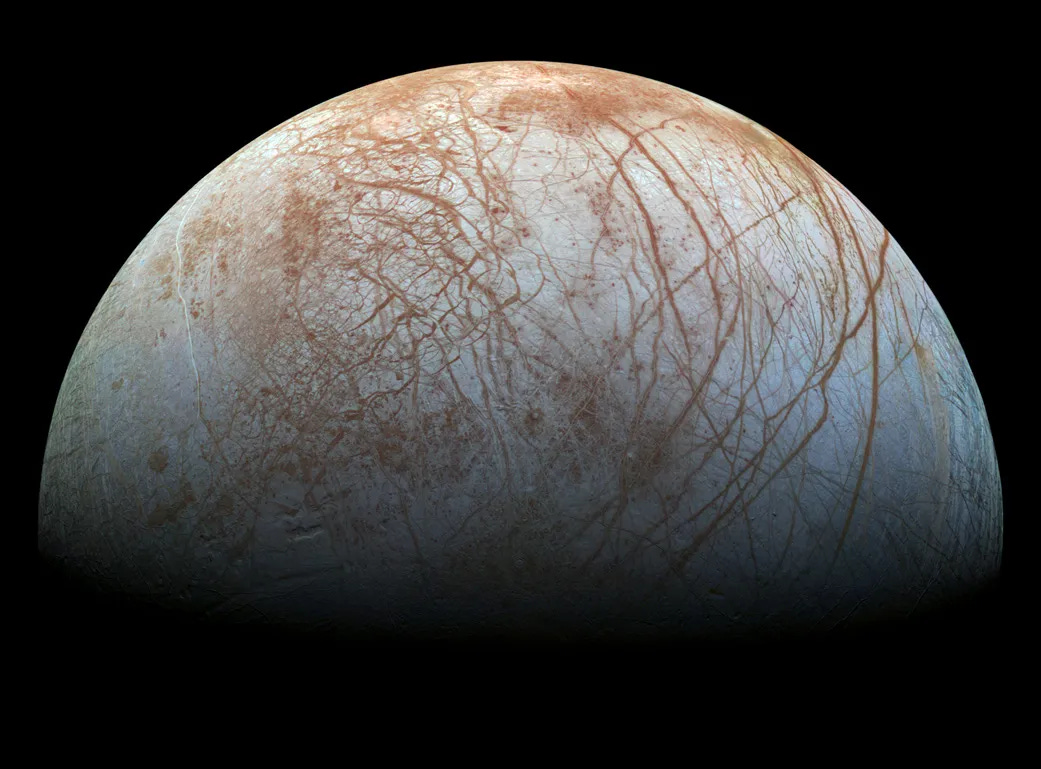
Is anyone out there, ‘cause it’s getting harder and harder to breathe’ (on Europa). According to a new study, what was once thought to be one of the most promising worlds in our solar system – in terms of habitability – may actually lack the oxygen required for life to survive. But we’ll need to dig deeper (into the ice) to be sure.
If you just can’t get enough of the Intuitive Machines post-game show, you can read this piece on lunar physics – and why the tuck-and-roll has become the fate of so many lunar landers.
If there was a Venn diagram of friends, one side would be the space pals who completely share in celestial nerd-dom, and the other would be the folks who still feel the need to shout “green screen!” upon any reference to the Apollo missions. Then, there’s the middle. A group you might sometimes feel yourself reflected in, a group who is far from jumping on the conspiracy theory train, but does ask: what really is the cause of our 50-year hiatus from the moon? How close are we, really, to being able to exist up there? Similarly inspired by the lunar faux-pas as of late, this article reflects a realistic status report on our global space progress – and how far we have left to go.
While certainly, there’s “an element of fantastic” to our lofty human spaceflight goals – and yes, it’s been a hot minute since humans set foot on the moon – the New Yorker offers a fresh perspective on how the relatively new private sector has and will continue to fill in the gaps we might be feeling in regard to progress.
This incredible Antarctic airstrip team works tirelessly to support a research station, whose study of ice patches using European Space Agency satellites contributes to the world’s climate change research. Beyond this, though, the team is a shining example for future space settlement – off how to adapt to a harsh environment, instead of trying to control it.
In another Earth-based analog, a trio of doppelgangers attempted to replicate a celestial settlement from a cave in Spain. And there’s a documentary to
warn us allspill all the cave-tea premiering at South by Southwest film festival in Austin this weekend.Some of our greatest journeys are close to home, like the rescue mission for this bird – er, Budge Lightyear – found in the UK’s space centre’s car park.
Russia may hope we’ve all forgotten about their (potential) anti-satellite weapon launch last month. After all, there’s so much else to focus on. But considering Earth’s history of anti-satellite warfare, we shouldn’t doubt Russia’s willingness to violate the nearly 60-year-old treaty that keeps nuclear activity out of the stars.

